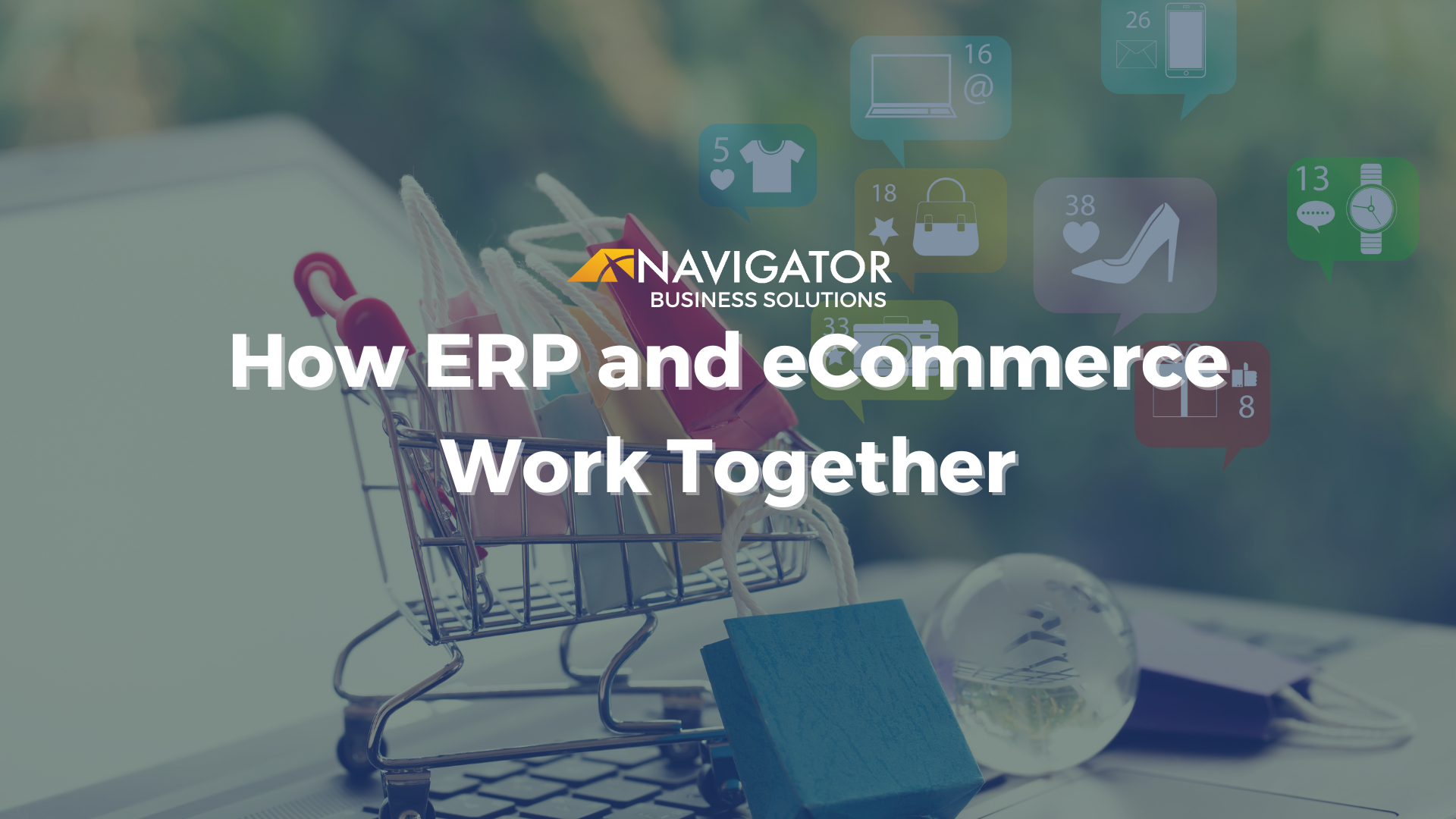
How ERP and eCommerce Work Together
Multi-channel sales are the norm for most businesses, with direct-to-consumer sales, distributor and retail channels, and online marketplaces such as Amazon. So is multichannel customer support, which often requires phone, chat, and email along with social media customer service.
Managing these multiple sales and support channels and integrating them into a seamless whole can be challenging without an enterprise resource planning solution (ERP) in place. So let’s look at how ERP helps support eCommerce and a multichannel environment.
ERP is the Backbone for eCommerce
Because businesses must sell and support their products in multiple channels, there’s the need for an integrated backend that coordinates with these multiple channels and serves as the master data source. That’s where ERP comes in.
ERP is an end-to-end business backend system that handles all parts of business operations, including manufacturing, sales, inventory, logistics, and customer service, along with other areas of a business such as financial management and human resources. ERP is the master data repository for a business and the connective tissue that integrates the various sales and support channels into a unified whole.
Through the use of ERP, a business can coordinate multiple eCommerce sales channels with production and inventory, then support these products on multiple channels without creating a disconnect when a customer asks for help on a social media channel but then seeks additional support later with phone or chat support.
“For us, master data is the key to success,” says Annika Glock, Global IT Manager of CRM Processes for Freudenberg Home and Cleaning Solutions GmbH, the parent company of consumer products firm Vileda. “It’s crucial that our SAP ERP application and the SAP Commerce Cloud, SAP Service Cloud, and SAP Sales Cloud solutions work in perfect harmony. That way, we can share information and insights in real-time to inform decision-making in our sales and service processes.”
Integrating eCommerce Platforms Through the SAP Business Technology Platform
ERP solutions such as SAP S/4HANA Cloud Public Edition and SAP Business ByDesign enable businesses to connect both direct sales channels such as a company website and e-commerce platforms such as Amazon to their sales, inventory, and logistics software. With this integration, a business enables end-to-end automation and complete, real-time visibility of sales activity.
This level of e-commerce and direct-to-consumer sales integration is possible because ERP offers a wide variety of integration options that include both ready-made integrations for major e-commerce platforms and cloud services such as the Salesforce Cloud and also a variety of custom hooks that can be configured to connect with smaller platforms and specific third-party systems.
Through the SAP Business Technology Platform (BTP), a business can connect its SAP ERP system to a major e-commerce platform in only a few clicks. For less common online sales channels, businesses can leverage the BTP’s no-code visual editor for developing custom connections through an API or EDI connection. These connections can handle orders and update inventory in real time even when each e-commerce platform has its own data formatting and order structures.
Unifying Customer Service Through the SAP Service Cloud
Connecting the various e-commerce platforms to a company’s backend is only part of an efficient e-commerce strategy, of course. There’s also the need for integrated customer service both before and after-sales. ERP also helps with this.
The customer relationship management (CRM) component of an ERP solution serves as the master data repository for customer data and interactions, and through the SAP Service Cloud, a business can provide support across multiple channels while having all these interactions flow back to the CRM for a unified customer interaction across channels.
“A high-quality aftersales experience is an essential part of our overall offering,” notes Jim Leonard, service manager for Bosch Automotive Service Solutions Inc. USA. “We are constantly aiming to improve the customer experience and increase the efficiency of service processes, and SAP Service Cloud is supporting us on this journey.”
The SAP Service Cloud does this enabling a unified customer support environment that combines traditional support channels with social media channels and even self-service support portals. Customer support agents can engage with customers along any channel, and all interactions flow back to the company’s CRM for a unified view of all customer interactions including sales data.
Through the use of the SAP Service Cloud, businesses also can enable high levels of support automation and drive sales and support insight with automated reporting, sales and support dashboards, and artificial intelligence-based analytics.
Learn More About How ERP and E-commerce Work Together
For a deeper look at how ERP can enable more efficient e-commerce and a multichannel sales and support strategy, watch a demo of SAP ERP in action or contact one of our experienced ERP consultants at (801) 642-0123 or write us at info@nbs-us.com.

